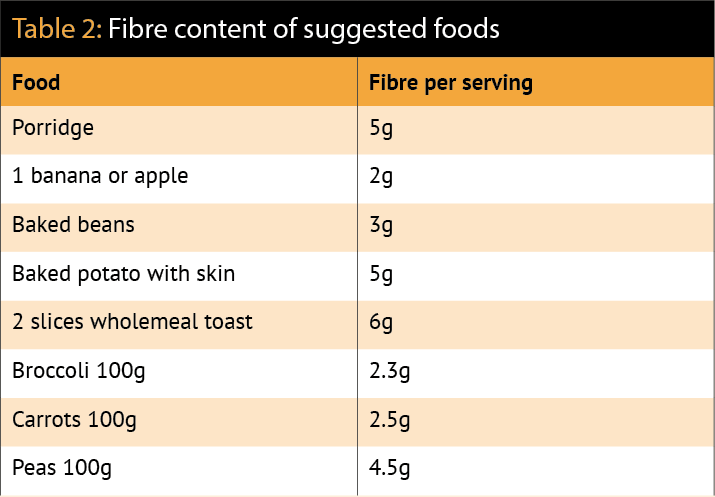Dietary and lifestyle advice is the first line of approach and should be the chief intervention for managing constipation in most patients.
The mainstay of dietary advice is to increase fibre intake from a variety of sources, as eating too much of one type may not provide a healthy balanced diet. Giving patients practical examples and choices may help (see Table 2). There are several information leaflets that can help patients with this and the NHS Eat Well web pages also have useful information (see Resources for patients, page iv).

Source: Association of UK Dietitians.
Regular exercise
Regular exercise is important. Simple advice is to get out for a walk on most days when this is possible. The NHS website has useful information on getting started with exercise. In those limited by frailty, age and long-term condition disability, there are specific sets of guidance on the NHS site.
Improving toilet routine
Toilet routine is a lifestyle aspect that may be neglected. Patients should be encouraged to keep to a regular time and place, and give themselves plenty of time to use the toilet (for example, getting up a few minutes earlier to avoid rushing out in the morning). They should not delay if they feel the urge to go to the toilet.
Sometimes going to the toilet is easier with the knees raised above the hips and the use of a low stool (e.g. Squatty Potty) while on the toilet has been shown to reduce straining and the time taken to move the bowels. This is a simple intervention that pharmacy teams can suggest and ask patients to give feedback about.
